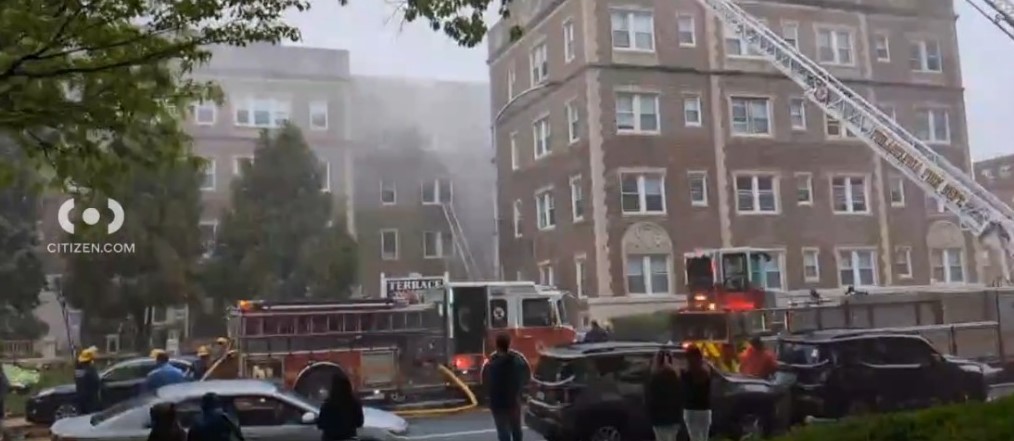An analysis of twelve Southeastern Pennsylvania school districts found eleven consistently told taxpayers they needed more money than they did. The NBC 10 Investigators reviewed a dozen suburban Philadelphia school districts' audited budget statements, comparing the projected budgets presented to taxpayers with actual spending. The investigation comes as the Lower Merion School District fights a lawsuit accusing it of misleading taxpayers.
The NBC 10 Investigators analysis found Lower Merion, Central Bucks and Downingtown area schools had the largest difference between what they projected to taxpayers and what they spent.
“Every budget has to go through an extensive process that is subject to approval by the state of PA,” Lower Merion School District spokesman Doug Young said. According to the district’s audited financial statements, it has over estimated its budgets by an average of 6.9% since 2009. The district’s average surplus is $13.6 million according to those financial statements. Taxes increased in Lower Merion Township more than 50% during that same period.
The Central Bucks School District had the largest average budget error of those reviewed according to the district’s audited financial statements.
“I think we’re doing things very well, but I think it would be highly irresponsible of us to sit here and say we can’t get better at it and be better communicators about what our long term goals are here at Central Bucks,” Superintendent John Kopicki said of the district’s 7.6% average budgeting error.
Kopicki said the extra money collected is used to renovate schools and pay down debt.
In Downingtown, the superintendent said the district intentionally over budgets for the same reason.
Local
Breaking news and the stories that matter to your neighborhood.
“The general fund is the only revenue generating fund that we have,” Downingtown Area School District Superintendent Lawrence Mussoline said. “There’s a history to this. This is 20 years of us doing this. This isn’t six years.”
According to the DASD’s audited financial statements it’s average budget error was 7.1%.
“It’s sidestepping the public,” Pennsylvania Auditor General Eugene DePasquale said of the NBC 10 Investigator’s findings. “We’re certainly going to make sure they’re on our list for future audits.”
“We were doing it in secret. We were not telling the public what we were doing,” Former Unionville Chads Ford School Board member Keith Knauss said. Knauss said when he discovered his district over budgeting, the school board changed its practices. According to the district’s audited financial statements, its budget error was 1.5% over the last five years. The district’s average surplus was $1 million.
“Sound fiscal management is a key strength of our District, enabling our highly rated program while simultaneously prudently managing taxpayer dollars,” said a statement released by the district. “Our stated goal is to produce spending plans that are within 2% of actual expenditures and the five years of audited results show that we were well within our goal.”
The one district NBC10 Investigators found under budgeting was the Upper St. Clair School District in western Pennsylvania. It’s average budget error was -1.4%. It carried a deficit of $900,000 during the years reviewed by the NBC 10 Investigators.
“You do not necessarily plan a refinancing activity prior to the adoption of the budget,” the district’s budget director Frosina Cordisco said in a statement. “Refinancings are reviewed and Board approved contingent upon favorable market conditions.”
The Radnor Township School District called the analysis of its finances misleading, however district communications director Michael Petitt did not respond to a request to clarify that statement. According to the Radnor Township School District’s audited financial statements, the district had an average budget error of 4%. Petitt said $13.4 million was omitted from the district’s “end of year actual expenditure.” He did not respond to questions as to why.
“Excluding these expenditures inaccurately inflates the amount of surplus as well as the percentage amounts,” he wrote in a statement. “In anticipation of future large increases in contributions toward the Pennsylvania School Employee Retirement System (PSERS), district administration and School Board members had the foresight to plan ahead and create a PSERS Rate Stabilization Fund to fund these increases. District administration and School Board members recognized that the PSERS increases over multiple fiscal years would well exceed the funds the district would be able to be collect under each year’s Act 1 Index, which limits the ability to raise property taxes. Thus, the district prudently maintained a savings account over these years to fund the PSERS increases.
The West Chester Area School District also said pension responsibilities play into it raising more money than it spends. The district’s average budget error was 3.9% according to its audited financial statements.
“We work very hard to be fiscally responsible with our budgets,” superintendent James Scanlon wrote in a statement. “We have a board policy that targets an undesignated fund balance between 5% and 8%. Despite all of the mandated expenses, the average tax increase over the six year period of 2010 to 2015 was 2.2%, with two years being 0%. Our average percent of fund balance to actual expenses was 3.3% and each year of savings went to pay for capital projects or was used to help offset the following year’s budget.”
The Wallingford Swarthmore School District also said it uses the extra money to pay down debt ultimately saving taxpayers money. The district had an average budget error of 3.2% according to its audited financial statements.
“Budgeting is always challenging and not an exact science,” superintendent Lisa Palmer wrote in a statement. “Our goal is to prepare a budget that not only provides for our students’ needs, but is realistic in terms of our annual revenue and expenditure assumptions. However, sometimes opportunities present themselves during the course of the school year - after the annual budget is adopted.”



